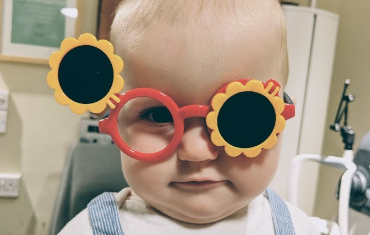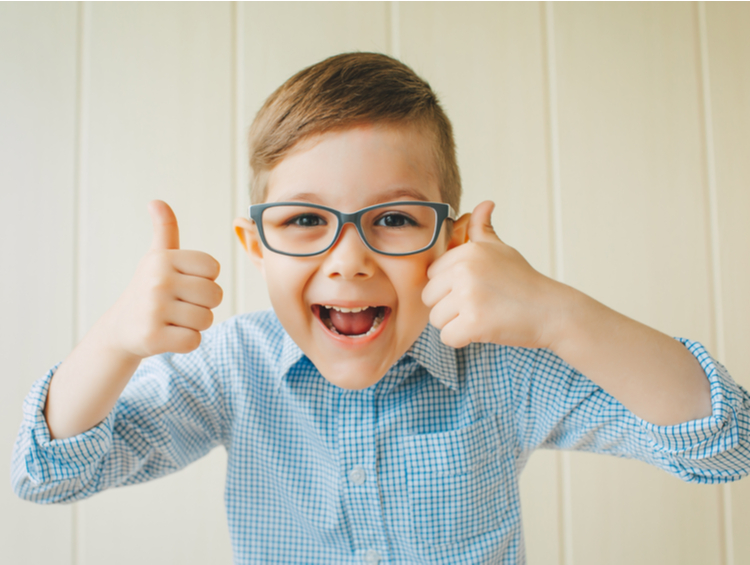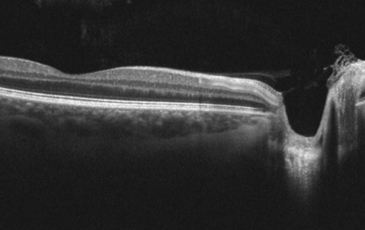At Probert & Williams Eye Care, we absolutely love testing kids' eyes! Not only can it be a fun and fascinating experience for your little ones, it should be an important part of their routine health checks. Did you know that a quarter of children have never visited an optometrist for a sight test yet more than one in ten children have an undiagnosed sight a problem that could impact how they get on at school and everyday life? This includes one in fifty children who go on to develop amblyopia (lazy eye), which is often unnoticed by parents. Children have a basic vision screening at school at about 4 or 5 years old, however this does not check the health of their eyes or their glasses prescription, therefore we still recommend a full eye examination even if they’ve passed.

We do not have a minimum age that a child can come to see us and, in the past, have seen babies that are only weeks old! They don't need to be able to read or even speak, and we are very happy to see children at any age especially if you have any concerns, or if you have a family history of eye conditions like strabismus (squint) or amblyopia. We certainly recommend that every child has a check by about 3 years old.
Children under 16 receive an NHS-funded sight test, so why not book them in today?
“Sadly we often come across children with vision problems at a stage of childhood where it is too late to do anything about it. We make eye exams for children a lot of fun!” - Lisa Probert, Specialist Optometrist & Director
EYE EXAMS FOR CHILDREN
Children under 16 receive an NHS-funded sight test, as well as financial help towards the cost of glasses. We absolutely love testing the eyes of little ones and have a range of tests suitable for children of all ages from letter charts and picture charts, to a test called 'Cardiff Cards' which tell us what your child sees without them even saying what they see!
UV PROTECTION & SUNGLASSES
Even in Wales, we are exposed to ultraviolet (UV) radiation on a daily basis, and studies suggest that up to half of a person’s UV exposure happens before the age of 20! We know that UV can cause all sorts of health problems including cataracts and skin cancers. Did you know that 10% of all skin cancers occur on the skin around the eyes?
We recommend all children wear sunglasses when outside no matter what their age especially when the UV levels are moderate and above (if in doubt, check the Met Office UV Index Forecast). Many of our contact lenses come with UV filters in them.
GLASSES - CHOOSING THE RIGHT FRAMES
Choosing glasses for children is very important because we want them to be happy to wear them when they need to. We have a range of frames suitable for smaller faces and have expert dispensing opticians and dispensing assistants to help you out.
Here's a list of top tips for choosing the best frames for your little one:
- It may seem straightforward but choosing a pair that your child likes is incredibly important in helping them want to wear them!
- Kids’ heads aren’t just a smaller version of adults’ heads, they have different features such as flatter nose bridges, which make choosing and fitting frames a little more tricky.
- Ensuring the frames sit well on the nose and are well adjusted on the sides is incredibly important in stopping them slipping down the nose. Children should be looking through the lenses at all distances, especially younger ones!
- The sides of the frames should not touch the temples and the rims should not touch the cheeks. If they do, they can cause discomfort and reactions to the frame material.
- Children with special needs often need specially adapted frames and we can supply these. We use manufacturers such as Tomato Glasses who build very modifiable, colourful frames for kids.
- It may seem simple, but enthusiasm and encouragement from parents makes a massive difference in how children feel about their new glasses.
CONTACT LENSES
While contact lenses aren’t often the first thought for parents, children and teenagers usually take to them incredibly well. They are a great alternative to glasses, especially for active kids that are playing sports!
Are they safe?
We find that with the correct tuition, children and teenagers can safely wear lenses, with evidence showing they are no less safe than when adults wear them. As with any time contact lenses are worn, there is always the chance of developing complications, however the risk of this is usually very low, but please feel free to contact us and our optometrists will happily answer any questions you might have.
MYOPIA MANAGEMENT
If your child is myopic (short-sighted) we can do more than simply correct their vision using glasses, there is some evidence that we can slow the rate at which they become myopic. Click here to learn more about slowing down your child's myopia.


